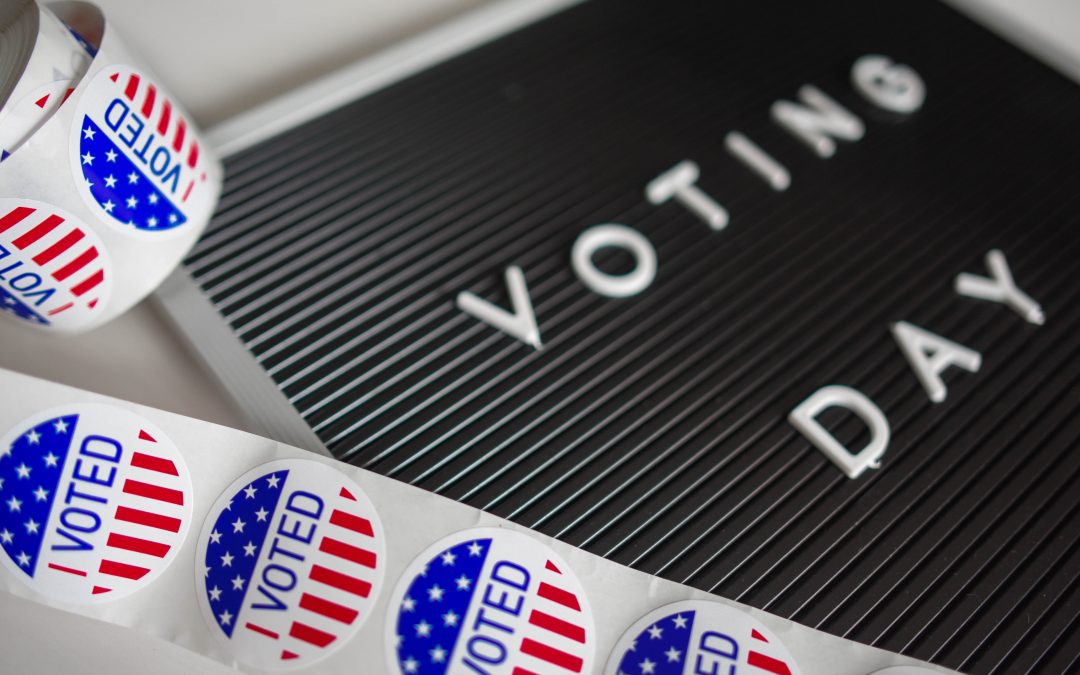Today’s the big day – our neighbours to the south are headed to the polls to determine who will be their president for the next 4 years. If it’s anything like the last U.S. election, there’s no doubt that this will likely be a hot topic for discussion in your workplace even for us Canadians. While I encourage all of my colleagues to speak their mind, politics is a topic I advise them to avoid in the workplace. As important as politics are to our society, political discussions can become heated and divisive by nature, and have the potential to damage working relationships. Additionally, the current political landscape, in conjunction with the pandemic, may have some people feeling unnerved, anxious, or even scared. As an organization, we should work to bring our colleagues together, not divide them. For this reason, it’s best to clearly communicate your expectations to your employees when it comes to discussing politics in the workplace.
I’ve outlined some steps below you can take to help limit your employees from discussing politics in the workplace.
Implement a workplace behaviour policy
The easiest way to discourage your employees from discussing politics in the workplace is to include a clause about it in your workplace behaviour policy. A workplace behaviour policy is a company policy that outlines what behaviours are and are not acceptable during work hours and on company property. The contents of this policy should be on the basis of treating your colleagues with respect regardless of their personal beliefs and how they may identify themselves. While many organizations already have one in place, it may not be updated to reflect today’s working conditions. For this reason, I encourage you to revisit your workplace behaviour policy to include verbiage regarding virtual and home-based offices. It’s important to remind your employees that although they may be working virtually, the workplace behaviour policy is still applicable to them.
In regards to politics, you may request that no political discussions take place on company property, and that any paraphernalia related to political affiliations be prohibited on company property. If working virtually, this may also include working in a space that is free of any items with political affiliations (including that oversized Obama poster hanging in your office that you love so much). Additionally, I suggest reminding your employees that they should also be cautious about discussing politics with their colleagues outside of work hours as well.
Send a reminder
As your employees may have only read the workplace behaviour policy once upon being hired, you may want to remind them of its contents at this time or during any election season. Specifically, remind them of any language pertaining to discussing politics in the workplace and explain why this policy is in effect. Organizations are made up of people from a diverse range of backgrounds, so it’s important to be cross-culturally sensitive.
I also recommend reminding your employees to be cautious of what they post on social media, especially if they’ve associated their account with you as an employer. If you have a policy specific to social media use, ensure your employees are familiar with it and understand it.
Encourage voter participation
While it may not be applicable to this specific election, I always encourage my employees to practice their civil duty by voting whenever there is a Canadian election. Of course, any language regarding particular candidates, policies, or parties should be avoided, but a quick “Don’t forget to vote” email to your staff will send out the right message.
If your employees are feeling oppressed or anxious about today’s political landscape, refer them to their Employee Assistance Program (EAP) to speak with a certified mental health counsellor who can help them with their needs.

